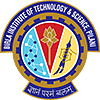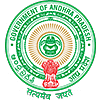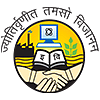Pharm.D Syllabus and Subjects

The Pharm D syllabus gives exposure to students in various industry-specified functions such as those in the areas of healthcare services, research, BPOs, etc. Pharm.D job scope is extensive and all the subjects aligned with the course aim to help train the students for roles such as clinical pharmacist, research associate, data analyst, etc.
Table of Contents
Semester-Wise Pharm.D Syllabus
The semester-wise Pharm.D syllabus focuses on studying the subjects of medicinal biochemistry, clinical research, pharmaceutical microbiology, pharmaceutics, pharmaceutical analysis, pharmacognosy & phytopharmaceuticals, etc. The Detailed Pharm D syllabus is given below:
Pharm.D First-Year Syllabus
The semester-wise Pharm.D first-year syllabus is listed below:
| Semester I | Semester II |
| Human Anatomy and Physiology | Pharmaceutics |
| Medicinal Biochemistry | Pharmaceutical Organic Chemistry |
| Pharmaceutical Inorganic Chemistry | Remedial Mathematics/Biology |
Pharm.D Second-Year Syllabus
The semester-wise Pharm.D second-year syllabus is listed below:
| Semester III | Semester IV |
| Pathophysiology | Pharmaceutical Microbiology |
| Pharmacognosy & Phytopharmaceuticals | Pharmacology- I |
| Community Pharmacy | Pharmacotherapeutics - I |
Pharm.D Third-Year Syllabus
The semester-wise Pharm.D third-year syllabus is listed below:
| Semester V | Semester VI |
| Pharmacology - II | Pharmaceutical Analysis |
| Pharmacotherapeutics - II | Pharmaceutical Jurisprudence |
| Medicinal Chemistry | Pharmaceutical Formulations |
Pharm.D Fourth-Year Syllabus
The semester-wise Pharm.D fourth-year syllabus is listed below:
| Semester VII | Semester VIII |
| Pharmacotherapeutics - III | Hospital Pharmacy |
| Clinical Pharmacy | Biostatistics and Research Methodology |
| Biopharmaceutics and Pharmacokinetics | Clinical Toxicology |
Pharm.D Fifth-Year Syllabus
The semester-wise Pharm.D fifth-year syllabus is listed below:
| Semester IX | Semester X |
| Clinical Research | Pharmacoepidemiology & Pharmacoeconomics |
| Clinical Pharmacokinetics | Pharmacotherapeutic Drug Monitoring |
| Clerkship | Project Work (Six months) |
Pharm.D Subjects
The syllabus of Pharm.D provides the students with an in-depth knowledge of the world of pharmaceutical science and its various prospects. Pharm. D syllabus focuses on core subjects throughout its five-year academic duration with an internship training of one year. Students study the subjects in Pharm.D throughout a 10-semester break up to make the syllabus more flexible.
Pharm.D Core Subjects
The core Pharm.D subjects list contains essential subjects that all Pharm.D students study, which are as follows:
- Community Medicine
- Forensic Medicine
- Pathology
- Pharmacology
- Microbiology
- Clinical postings inwards
Pharm.D Elective Subjects
The elective Pharm.D subjects list contains subjects that Pharm.D students can take, which are as follows:
- Community Medicine
- Medicine and allied subjects (Psychiatry, Dermatology)
- Obstetrics and Gynaecology
Pharm.D subjects in Detail
Some of the Pharm.D subjects are given in a greater detail:
|
Pharm D subjects |
Topics Covered |
|
Pharmaceutics |
Concept of health, Nutrition and health, First aid, Environment and health |
|
Pharmaceutical Chemistry |
Acids, bases and buffer, Antimicrobials and Astringent, Expectorants and Emetic, Quality control of Drugs |
|
Pharmacognosy |
Pharmaceutical aids, Carbohydrates, Vitamins, Therapeutics |
|
Pharmacology & Toxicology |
Routes of administration of drugs, General mechanism of drugs action, Drugs acting on the respiratory system |
Pharm.D Syllabus: Internship
The candidate must complete a one-year internship to complete the course. When candidates are in the internship stage, they experience how things work in their field. You will also learn how to maintain interpersonal relationships with your patients. This internship will focus on the experience.
Students independently provide clinical pharmacy services to their allotted wards during the internship. The training period includes six months in general medicine with specialty training of two months each in specialty departments.
| Specialty | Duration |
| Surgery | 3 Months |
| Pediatrics | 1 Month |
| OB &G | 1 Month |
| Psychiatry | 3 Months |
| Skin and VD | 1 Month |
| Orthopedics | 2 Months |
| Total | 12 Months |
Pharm.D Course Structure
The Pharm.D syllabus is designed in a core subject pattern throughout the 10-semester duration. The Doctor of Pharmacy syllabus gives students a critical approach to pharmaceutical science research and industry requirements. The institutional training in the 6th year also forms a core component of the PharmD syllabus that prepares students adequately for the industry demands. The Pharm.D syllabus course structure is listed below:
- X Semesters
- Core subjects
- Project submissions
- Practical submissions
- Internship training
- Clinical Pharmacy training
Pharm.D Teaching Methodology and Techniques
The Pharm.D syllabus is a long course that includes various on-field training and internship periods to mitigate the students into the field of pharmaceutical science appropriately. For example, the 3rd year Pharm.D syllabus focuses on the analysis and formulations of pharmaceutical concepts and a course in Pharmacotherapeutics. The Pharm.D Subjects introduce the students to various concepts each semester. Some of the teaching methods appropriate in the Pharm.D syllabus are listed below:
- Academic lectures
- Laboratory training
- Fieldwork
- Internship period
- Institutional training
- Individual assignment
- Group assignment
Pharm.D Projects
Healthcare has become a global need, with people requiring medical assistance in one way or another. Fatalities and injuries are inevitable to the human condition, and therefore, careers like Pharm.D play a considerable role in providing those essential services. Some of the Pharm.D project areas popular among students are listed below:
- Drug utilization evaluation studies
- PDCA and 5S studies
- Cost Minimisation Analysis
- Infection control program and evaluation
- Vaccine safety including ADR monitoring and evaluation
- Six sigma and evaluation of pharmacy services
- Drug-related problems and management
Pharm.D Reference Books
Pharm.D reference books are available to students through online and offline modes. The students can also download some of the Pharm.D syllabus books online to reduce the cost of buying further. Some of the popular Pharm.D reference books are listed below:
| Name of the Books | Authors |
| Applied Therapeutics (10th Edition) | Kimble & Young |
| Concepts in Sterile Preparations and Aseptic Technique | Ochoa & Vega |
| Drug Information | Malone, Kier, and Stanovich |
| Pharmacy Practice and the Law | Richard R Abood |
| Medical Microbiology | Murray, Rosenthal, and Pfaller |
| Mosby’s Drug Reference for Health Professionals (6th edition) | Mosby |
Top Pharm.D [Doctorate of Pharmacy] Colleges
Top Pharmacy Entrance Exams
Pharm.D Fee Structure
FAQs on Pharm.D Syllabus and Subjects
Q: What is the 1st year syllabus of Pharma D?
Q: What are the core subjects of Pharma D?
Q: What are the elective subjects in Pharma D?
Q: What are the Pharma D projects?
Q: What are the important books for Pharma D?























